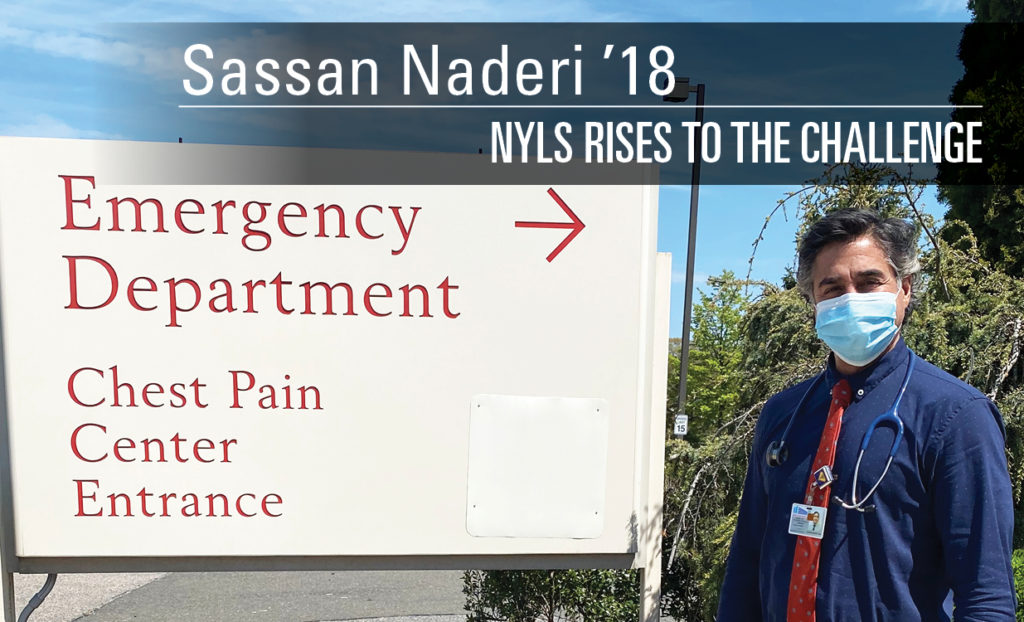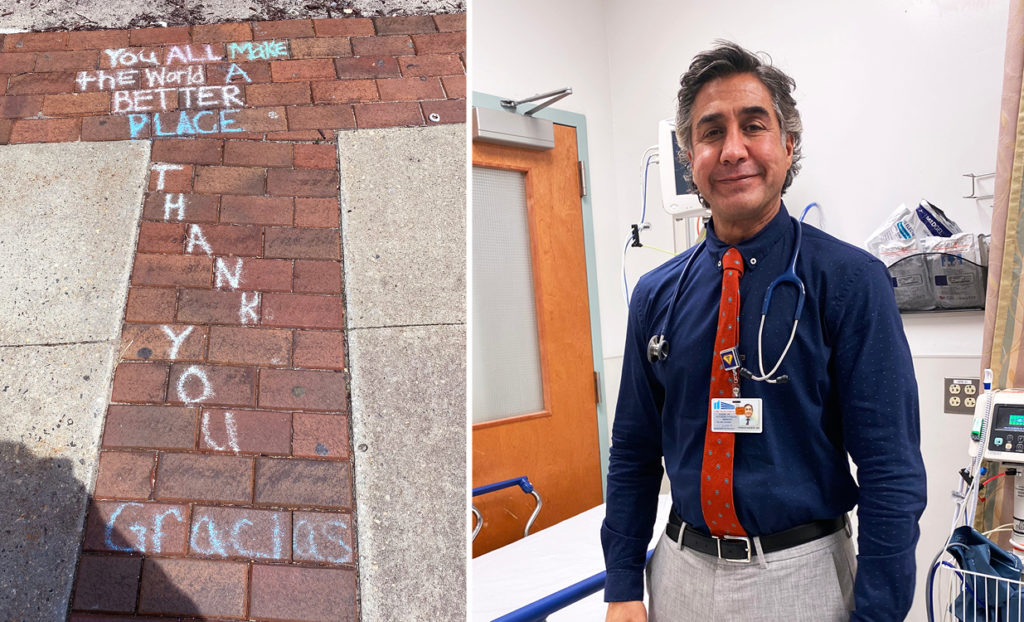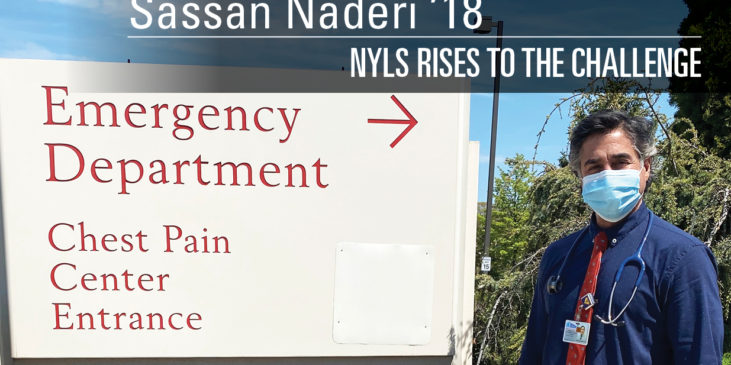
Editor’s Note: As the nation responds to COVID-19, NYLS alumni and students are sharing their time, talents, and resources to benefit their local communities and the School. In this series, we share their stories.
He’s a skilled emergency physician of nearly two decades, with experience in hospitals across New York City. Dr. Sassan Naderi ’18 has seen a lot. But nothing prepared him for COVID-19.
Dr. Naderi—who earned his J.D. from NYLS’s Evening Division—is an Attending Physician of Emergency Medicine at Coney Island Hospital, a public hospital in one of the city’s hardest-hit neighborhoods. He’s witnessed the impacts of COVID in a way that few others have.
Working on the Front Lines
“Right around March 13 or 14, we started getting way more volume than usual,” Dr. Naderi said.
The Coney Island ER, which was used to seeing around 230 patients a day, spiked to 300 a day. And those patients were in serious condition.
“Our general hospital admission rate [from the ER] is usually 10 to 15 percent, and it went to 90 percent,” Dr. Naderi said. “Our ICU admission rate is usually 2 to 3 percent, and it went to 70 percent.”
Meanwhile, he and his colleagues grappled with shortages of protective equipment and illness among their ranks. Three-quarters of the ER’s doctors became infected, reducing staffing to anemic levels. For a time, instead of five ER doctors per shift, there were five total. Instead of 25 nurses per shift, there were five or fewer.
“It was definitely a rough run,” Dr. Naderi said. He and colleagues worked around the clock without a day off for weeks.
Fortunately, reserve medical staff helped plug the staffing gap, and case counts began to drop as New Yorkers stayed in their homes. The hospital received protective equipment and built a COVID tent.
“All of a sudden, it became very easy to care for people,” Dr. Naderi said.
In the aftermath of that initial whirlwind, he remains stunned by the ferocity and unpredictability of the virus.
“This virus is bizarre,” he said. “We don’t know what it’s capable of. We’re learning in real time.”
Dr. Naderi suspects he might have had a mild case of COVID twice, stemming from the initial onslaught. Because his mild symptoms didn’t qualify him for a test, he’s not certain.
“We were running into rooms trying to do the right thing and basically eating COVID for a good week,” he said. “There is no way I was not hyper-exposed.”

The Road Ahead
Because of his legal training, Dr. Naderi is thinking about systemic and policy-oriented solutions. He recognizes that health officials are doing their best to respond to unpredictable circumstances, but sees plenty of room for improvement.
“We didn’t have to have all of the medical staff get sick at once,” he said. “The government systems need to be more cognizant of what it was like for the people running into the rooms. When this all blows over, that should be addressed.”
Although the past few months have been trying, he has found bright spots. He’s bonded with colleagues in new ways, and his girlfriend has been a constant source of support.
“This pandemic gives you an appreciation for everything else—your health, your friends, the life you had before it started,” he said. “It’s forced us, as a society, into a semi-meditative state, where we have to reflect. But … I could think of better ways!”
Once work is calmer, he’s contemplating a project that combines his legal and medical training.
“For a long time, insurance companies have been dictating care and not being responsible for the outcome,” he said. “For example, let’s say somebody requires an MRI because of hip pain, and they’ll deny the MRI. In some cases, it ends up being cancer, and by the time you get the MRI, it’s too late. So, these companies are in effect making medical decisions. I think we could collect some cases and do something significant with that data.”
Those who wish to support NYLS and its students can learn more here.

